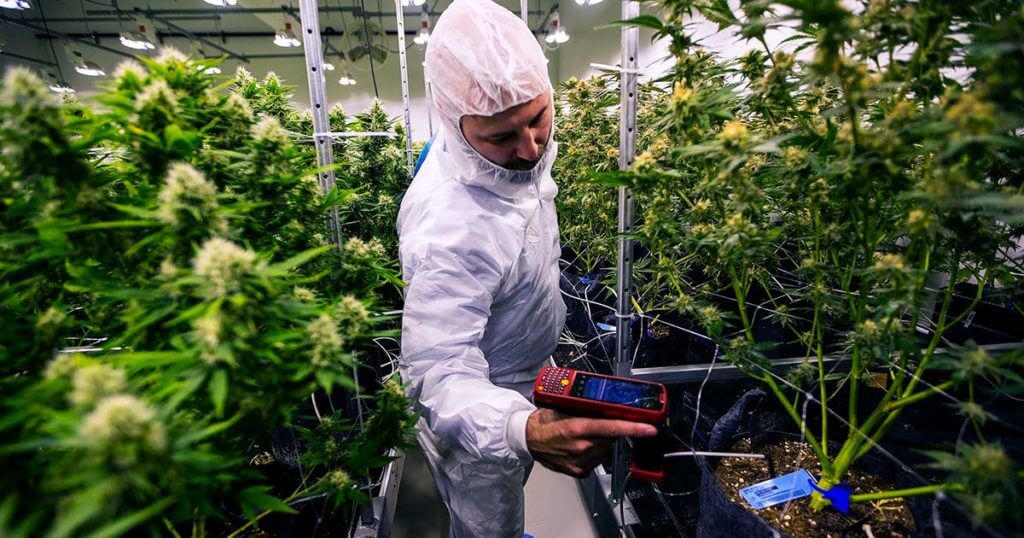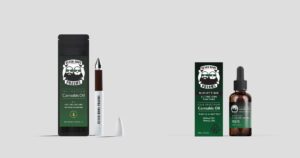In the 2019-2020 fiscal year, Health Canada seized nearly 40 tons of cannabis products from licensees who fell short of regulatory compliance. Of 35 million grams that were seized, around 26 million (28 tons) were destroyed, as were approximately 7,800 cannabis plants. The regulator for Health Canada held onto the remaining 9.5 million grams (almost 10.5 tons), in order to return them to licensees when and if they regained compliance.
Health Canada Non-Compliance Observations
In February, Health Canada released the inspection report for federal cannabis licensees, which showed that Canada’s top cannabis producers Aphria (prior to its merger with Tilray), along with Tilray, and Aurora Cannabis were, for the most part, compliant with their cannabis regulations.
However, one large producer that wasn’t compliant with Health Canada’s regulations was CannTrust. According to MJBizDaily, “In mid-2019, a whistleblower alerted Health Canada about five unlicensed cultivation rooms that CannTrust had been operating, leading to suspension of the operator’s licenses and former directors of the company being charged with fraud and insider trading under the Securities Act.”
Among the charges laid were:
CannTrust CEO Peter Aceto:
- Fraud
- Making misleading or false statements to the Ontario Securities Commission and to the market
- Making false preliminary reports and prospectus
- Permitting, acquiescing in, or authorizing the commission of an offence
Director of CannTrust, Mark Litwin:
- Fraud
- Insider Trading
- Making false preliminary reports and prospectus
- Making misleading or false statements to the Ontario Securities Commission and to the market
- Permitting, acquiescing in, or authorizing the commission of an offence
[Related Reading: Time to Tear the Mask Off of Cannabis Scams]
Former CannTrust Chair, Eric Paul:
- Fraud
- Insider Trading
- Making misleading or false statements to the Ontario Securities Commission and to the market
- Permitting, acquiescing in, or authorizing the commission of an offence
Though originally, the trio had been granted an adjournment until September of 2021, the legal proceedings are still ongoing at this time, says The Voice, a publication out of Pelham and Central Niagara, Ontario.
Other cannabis producers from which Health Canada seized cannabis products were Evergreen Medicinal Supply and Alberta Green Biotech. Both companies received “critical observations,” which is the most serious of regulation non-compliance observations. Health Canada defines it as such:
“A critical observation represents the most serious deviation or deficiency of the act or its regulations. Critical observations are those that are likely to:
- Increase the immediate risk of diversion
- Prevent the detection of diversion
- Present an imminent health risk
- May also involve the possibility of deliberate fraud, misinterpretation, or falsification of information”
Had those 30 tons of “bad” product hit the market, it would have made a monumental impact on market pricing.
Canopy Growth Corp.
In the year prior to the 2019-2020 fiscal year, one of Canada’s largest cannabis producers, Ontario’s Canopy Growth Corp., had received numerous citations from Health Canada for “serious regulatory violations,” says MJBizDaily.
However, despite having been visited by Health Canada inspectors on more than one occasion during the 2018-2019 fiscal year, it’s incredibly interesting to note that the following year, not only did Canopy not receive any violations, but they weren’t even subject to a single inspection.
The seizure of nearly 40 tons of cannabis products, and the destruction of almost 30 tons, including over 7,000 plants, is proof that despite the regulations set out by Health Canada, there are still many companies failing compliance within the country. It’s clear that much more needs to be done to ensure compliance for all cannabis producers within the country because if “bad” product were to hit the market, not only would be disastrous for market prices, it could also prove to be disastrous to the health and wellbeing of the people who purchase those products.
Health Canada needs to step up its game. Despite the fact that it’s ramped up the number of inspections it’s been doing from the 18-19 fiscal year to the 19-20 (293 to 417), it’s not enough. If previously non-compliant producers like Canopy Growth Corp. can slip through the cracks, what else is being flooded into the Canadian cannabis market that consumers are unaware of?
If you enjoyed this article, head over to Beard Bros Pharms to read more of our blogs.
















